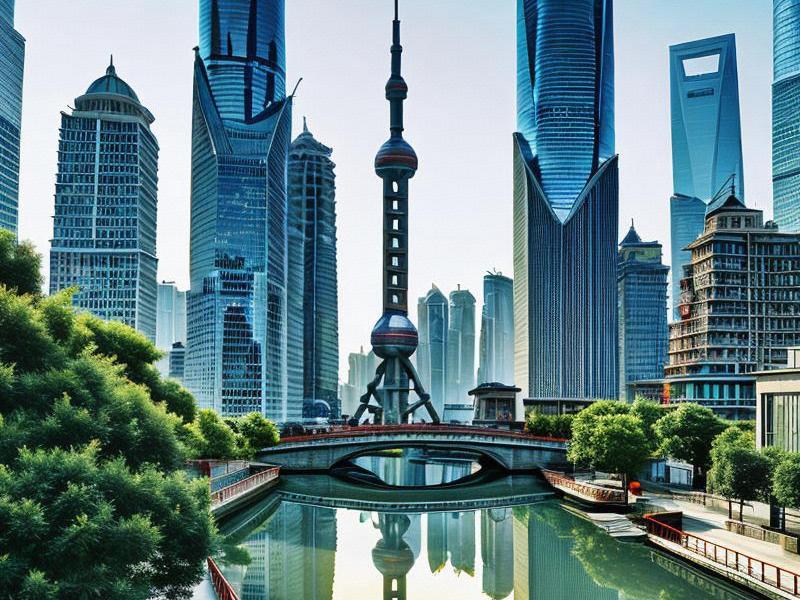This article delves into the multifaceted aspects of Shanghai, exploring its transformation into a global hub for innovation, culture, and urban development. It highlights the city's remarkable economic growth, cultural vibrancy, and the challenges it faces in maintaining its unique identity amidst rapid modernization.

Shanghai, often referred to as the "Pearl of the Orient," stands as a testament to China's economic and cultural evolution. Over the past few decades, this vibrant metropolis has undergone a remarkable transformation, emerging as one of the world's most dynamic cities. Its skyline, a blend of historic architecture and cutting-edge skyscrapers, reflects the city's rich history and its relentless pursuit of modernity.
The economic engine of China, Shanghai is home to the country's largest port, the busiest container port in the world, and a major financial center. The city's GDP ranks among the highest globally, driven by a robust manufacturing sector, a thriving service industry, and a burgeoning technology ecosystem. Shanghai's Pudong district, once a rural area, has been transformed into a symbol of China's economic prowess, housing the iconic Oriental Pearl Tower, the Jin Mao Tower, and the Shanghai Tower, the tallest building in China.
Innovation is at the heart of Shanghai's success story. The city has established itself as a global leader in technology and finance, attracting multinational corporations, startups, and talent from around the world. The Zhangjiang Hi-Tech Park, often dubbed "China's Silicon Valley," is a hub for research and development in fields such as biotechnology, information technology, and new materials. Shanghai's commitment to innovation is further underscored by its initiatives to promote entrepreneurship, with programs like the Shanghai Entrepreneur Public Training Base and the Shanghai Zhangjiang National自主创新示范区 (Zhangjiang National Independent Innovation Demonstration Zone) (Shanghai Zhangjiang National Independent Innovation Demonstration Zone).
上海龙凤sh419 Culturally, Shanghai is a melting pot of tradition and modernity. The city boasts a rich heritage, with landmarks such as the Bund, a waterfront promenade lined with colonial-era buildings, and the Yu Garden, a classical Chinese garden that offers a glimpse into the city's past. The French Concession, with its charming cobblestone streets and historic architecture, is another popular destination for those seeking a taste of Shanghai's colonial history.
Shanghai's cultural scene is as diverse and dynamic as its population. The city is home to numerous museums, theaters, and art galleries, including the Shanghai Museum, which houses an impressive collection of Chinese art, and the Shanghai Grand Theatre, a venue for opera, ballet, and classical music performances. The city also hosts a variety of cultural festivals, such as the Shanghai International Film Festival and the Shanghai Fashion Week, which attract visitors from around the globe.
The culinary scene in Shanghai is another highlight, offering a blend of traditional Shanghainese cuisine and international flavors. Dishes such as xiaolongbao (soup dumplings), shengjianbao (pan-fried dumplings), and hongshao rou (red-braised pork) are must-tries for food enthusiasts. The city's night markets and bustling street food stalls provide an authentic taste of local life, while its fine dining establishments cater to a more sophisticated palate.
上海娱乐
Urban development in Shanghai has been nothing short of spectacular. The city has invested heavily in infrastructure, with projects such as the Maglev train, the world's fastest commercial high-speed train, connecting Pudong International Airport to the city center in just minutes. The Shanghai Metro, one of the most extensive and efficient metro systems in the world, facilitates seamless travel across the city.
However, rapid urbanization has brought challenges, particularly in terms of housing and environmental sustainability. The city has implemented various measures to address these issues, such as the construction of affordable housing and the promotion of green building practices. The Shanghai Green City Action Plan aims to increase the city's green space and reduce carbon emissions, contributing to a more sustainable future.
上海喝茶群vx Shanghai's education system is another area of strength, with world-class universities such as Fudan University and Tongji University attracting students from around the globe. The city's commitment to research and innovation is evident in its partnerships with leading institutions worldwide, fostering a culture of academic excellence and collaboration.
Despite its achievements, Shanghai faces the challenge of maintaining its unique identity in the face of rapid modernization. The preservation of historical sites and the integration of traditional culture into the urban fabric are ongoing efforts to ensure that the city's heritage is not lost amidst its transformation.
In conclusion, Shanghai is a city of contrasts and complexities, where the old and the new coexist in harmony. Its economic prowess, cultural vibrancy, and commitment to innovation make it a global leader and a beacon of progress. As Shanghai continues to evolve, it remains a symbol of China's aspirations and a testament to the power of urban development.